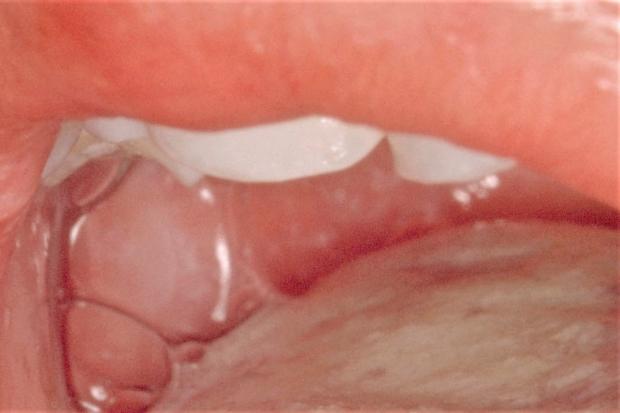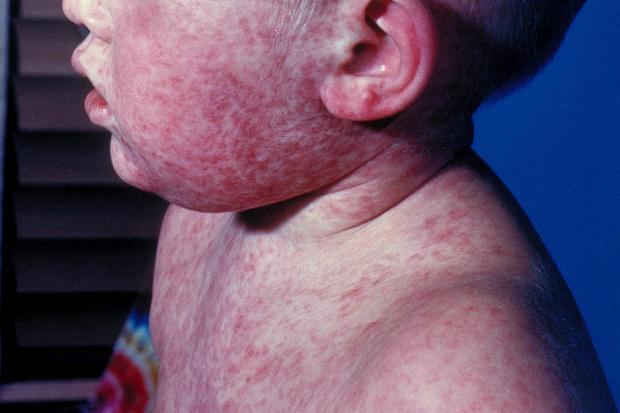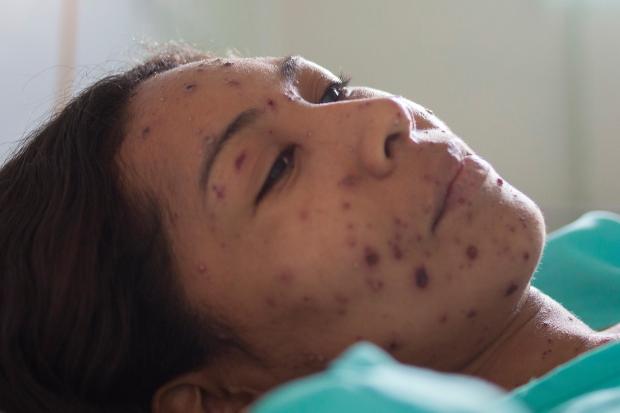Measles
Measles is a highly infectious viral illness. It can be unpleasant and sometimes leads to serious complications. It's now uncommon because of the effectiveness of the measles, mumps and rubella (MMR) vaccination programme. Anyone can get measles if they haven't been vaccinated or they haven't had it before.
Symptoms of measles
Measles begins with cold-like symptoms that develop about 10 days after becoming infected. This is followed a few days later by the measles rash.
For most people, the illness lasts around seven to 10 days in total.
Initial symptoms
The earliest signs of measles infection include:
- high fever
- runny nose
- cough or cold-like symptoms
- red, sore, watery eyes
- Koplik spots (small red spots with bluish-white centres) inside the mouth
After several days, a rash appears, usually on the face and upper neck.
The rash spreads, eventually reaching the hands and feet and lasts five to six days before fading.
Measles is commonly confused with other infections that can lead to a rash.
Spots in the mouth
A day or two before the rash appears, many people with measles develop small greyish-white spots in their mouth (Koplik spots).

Not everyone with measles has these spots, but if someone has them as well as the other symptoms listed above or a rash, it's highly likely they have the condition.
The spots will usually last for a few days.
The measles rash

The measles rash appears around two to four days after the initial symptoms and normally fades after about a week.

You or your child will usually feel the worst on the first or second day after the rash develops.
You can use 'skin rashes in children' to compare measles with some similar childhood rashes.
When to see your GP
You should contact your GP as soon as possible if you think you or your child may have measles. It's best to phone, because of the risk of spreading the infection to others.
If you or your child has measles, you should keep an eye out for any signs of the serious complications that can sometimes develop.
Seek urgent medical advice if you/your child:
- have shortness of breath
- a pleuritic chest pain (a sharp chest pain that feels worse with breathing)
- start to cough up blood (haemoptysis)
- have febrile convulsions (fits) or altered consciousness (for example lethargy or confusion)
Treating measles
Measles can be unpleasant but it will usually pass in about seven to 10 days.
It is likely to cause unpleasant symptoms including rash, fever, malaise (feeling unwell), cough, and conjunctivitis (see symptoms section).
There are several things you can do to help relieve your symptoms and reduce the risk of spreading the infection. These include:
- taking paracetamol or ibuprofen to relieve fever, aches and pains – aspirin should not be given to children under 16 years old
- drinking plenty of water to avoid dehydration
- closing the curtains to help reduce light sensitivity
- using damp cotton wool to clean the eyes
- staying off school or work for at least four days from when the rash first appears and avoid contact with susceptible people (that is, people who are not fully immunised through vaccination or natural exposure, infants, pregnant women, or immunosuppressed people)
In severe cases, especially if there are complications, you or your child may need to be admitted to hospital for treatment.
How serious is measles
Measles can be unpleasant but will usually pass in about seven to 10 days without causing any further problems.
Once you've had measles, your body builds up resistance (immunity) to the virus. It is highly unlikely you'll get it again.
Measles can lead to serious and potentially life-threatening complications in some people (see when to seek urgent medical advice above). These include infections of the lungs (pneumonia) and brain (encephalitis).
How measles is spread
The measles virus is contained in the millions of tiny droplets that come out of the nose and mouth when an infected person coughs or sneezes.
You can easily catch measles:
- by breathing in these droplets
- if the droplets have settled on a surface, by touching the surface and then placing your hands near your nose or mouth
The virus can survive on surfaces for a few hours.
People with measles are infectious from when the symptoms develop until about four days after the rash first appears.
How measles can be prevented
Measles can be prevented by having the measles, mumps and rubella (MMR) vaccine.
The MMR vaccine is part of the routine childhood immunisation programme.
Adults and older children can be vaccinated at any age if they haven't been fully vaccinated before.
Ask your GP about having the vaccination.
If the MMR vaccine isn't suitable for you, a treatment called human normal immunoglobulin (HNIG) can be used if you're at immediate risk of catching measles.
More useful links
The information on this page has been adapted from original content from the NHS website.
For further information see terms and conditions.